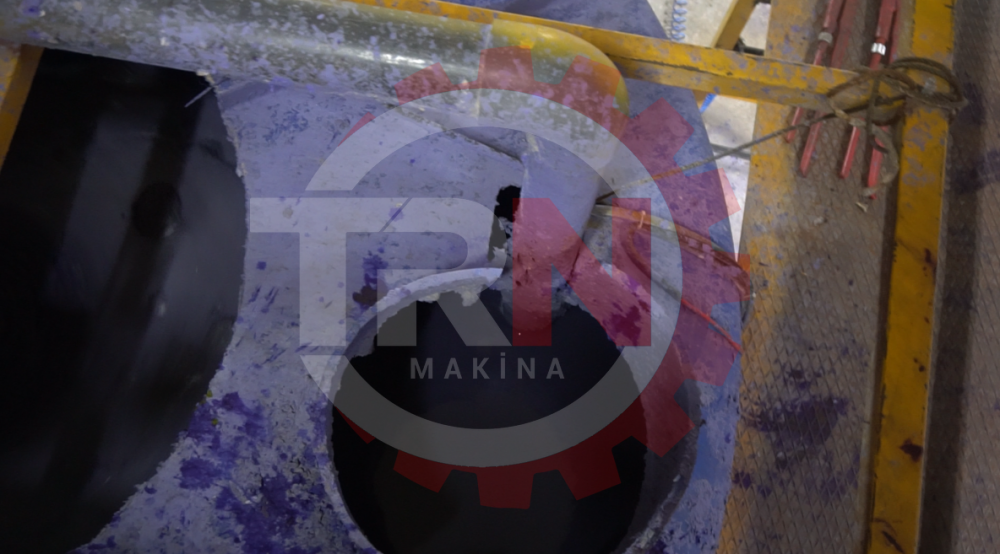What is a Pulper? What Does It Do?
What is a Pulper? What Does It Do?
Pulper, yumurta kartonlarının üretim sürecinde önemli bir yere sahip olan güçlü bir karıştırıcıdır. Atık kağıtları ve selüloz bazlı malzemeleri homojen bir hamur haline getirerek, yumurta kartonlarının üretimi için temel bir adım oluşturur. Pulper’in işlevselliği, üretim hattının verimliliği ve kalite standartlarının korunması açısından kritik öneme sahiptir. Modern pulper sistemleri, su ve enerji tasarrufu sağlayarak sürdürülebilir üretime katkıda bulunur. Yumurta kartonlarının dayanıklılığı, p
What is a Pulper? What Does It Do?
Egg carton production brings together many different technologies that play a crucial role in modern, sustainability- and quality-focused manufacturing processes. Among these systems, the device known as the "pulper" fulfills a fundamental function at the beginning of the production line. The pulper mixes waste paper and cellulose fibers with water to create a homogeneous pulp, thus initiating the first step of egg carton production.What is a Pulper?

A pulper essentially resembles a powerful mixer or grinder and is a vital device in the production process, especially in the paper recycling sector. It breaks down used papers, cardboard, and other cellulose-based materials into fine fibers, producing a homogeneous pulp. This pulp is then molded using a carton mold and transformed into egg cartons with the help of egg carton machines.
What Does a Pulper Do?

A pulper works to convert waste paper and recyclable materials into a suitable form for use in egg carton production. With the help of powerful motors and rotating blades, it softens tough and durable paper fibers, creating a homogeneous mixture necessary for production. This process is critical for egg carton manufacturers, as the pulper ensures that fibers separate correctly, preventing clogs in the production line. Additionally, homogeneous pulp contributes to smooth and sturdy egg cartons when molded with carton molds.
How Does a Pulper Work?
The working principle of a pulper is simple yet effective and durable. Inside a large tank, the material and water are rotated at high speed to separate the fibers. This ensures that the pulp has a smooth and uniform consistency. The pulper is also equipped with filtering systems to remove impurities, which helps prevent unwanted imperfections during the molding process using carton molds.The Importance of the Pulper in Egg Carton Production
Egg carton manufacturers must rely on high-performance pulper systems for the production of quality and durable cartons. The quality of the pulp directly affects the molding process carried out by egg carton machines. Homogeneous pulp allows for the production of smoother and sturdier egg cartons. At the same time, pulp with the right consistency saves energy during the molding process and minimizes the wear and tear of machine parts.If the pulper does not function correctly, residues or uneven structures may remain in the pulp. This can complicate the molding process using carton molds. When the pulp quality is low, egg carton machines may not deliver the desired results, disrupting the production process. Therefore, egg carton manufacturers should regularly maintain their pulper devices to ensure efficient operation.
Pulper and Sustainability
Another significant advantage of the pulper is its contribution to an eco-friendly production process. Recycling waste paper helps preserve natural resources. It also minimizes waste generated during the production process. The pulper can be optimized for water conservation as well. The reuse of recycled water reduces the environmental footprint of production facilities.Egg carton manufacturers invest in modern and efficient pulper systems to gain both economic and environmental benefits. Pulper models that provide high energy efficiency not only lower costs but also consume less energy. This reduces the overall cost of the production process carried out using carton molds.
Things to Consider When Choosing a Pulper
When selecting a pulper to work in integration with egg carton machines, manufacturers should consider several factors. First, the capacity of the pulper must meet the needs of the production line. Larger production facilities may require higher-capacity pulper systems. Additionally, energy efficiency is another important factor to consider.The material quality and durability of the pulper ensure long-lasting use with low maintenance costs. A durable pulper made of stainless steel offers advantages in terms of corrosion resistance and long-term use. Furthermore, the ease of maintenance and availability of spare parts are crucial for the continuity of the production line.
Pulper and Technological Innovations
Modern pulper systems are equipped with automation and digital monitoring technologies. These systems can monitor the pulp's consistency, energy consumption, and water usage in real-time. Egg carton manufacturers can analyze this data to optimize the production process and achieve higher efficiency. For example, a pulper equipped with smart sensors can automatically adjust the consistency of the pulp to always deliver the best results.The pulper plays an indispensable role in egg carton production. A quality pulper works in harmony with carton molds and egg carton machines to produce high-quality egg cartons. This process not only increases production efficiency but also offers an environmentally friendly approach. Egg carton manufacturers can continuously improve their pulper systems to gain both economic and environmental benefits.





